#Cornish paganism
Text
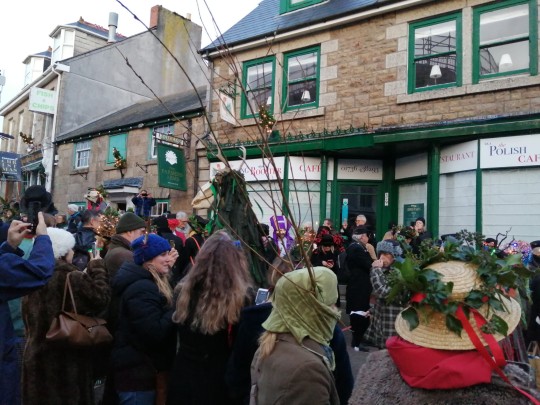







Montol Lowen and oh please let the sun rise
#Kernow#Montol#Winter solstice#Cornwall#Cornish#Cornish polytheism#Cornish paganism#brythonic polytheism#Brythonic paganism#Celtic polytheism#Celtic paganism
7 notes
·
View notes
Text

The Bucca's Stone
In Cornwall the shadow of the old gods is never far away. In the mines, offerings would be left to the Bucca and his faery kin "The Knockers", in the fields he stood as a scarecrow by day but by night lead the "Pisky" revels, but as lord of the seas and the storms he took his most majestic form.
Legend has it he was chased out of Newlyn by Paul Choir. Before he took to the air he chanted his name three times...BUCCA, BUCCA, BUCCA! But in the commotion he dropped his nets. As living proof of this take his nets still mark some of the stones around these parts...and this is one of them
from the Museum of Magic and Folklore, Aberfala, Kernow.
#bucca#bucca gwydn#bucca dhu#cornish polytheism#cornish folklore#cornwall#kernow#cornish paganism#brythonic polytheism#brythonic paganism#celtic polytheism#celtic paganism#paganism#folklore museum#consortish
73 notes
·
View notes
Text
there truly is something to people looking at the Bucca and taking Gemma Gary’s book at face value and running with it in their practices without ever being able to place Kernow on a map.
#dragonis.txt#perhaps it is the Cornish in me#but it is so… strange feeling to see this happen#Bucca is not the ‘Cornish folk devil’ nor another name for him#bucca#bucca deity#cornish paganism#kernow
1 note
·
View note
Text
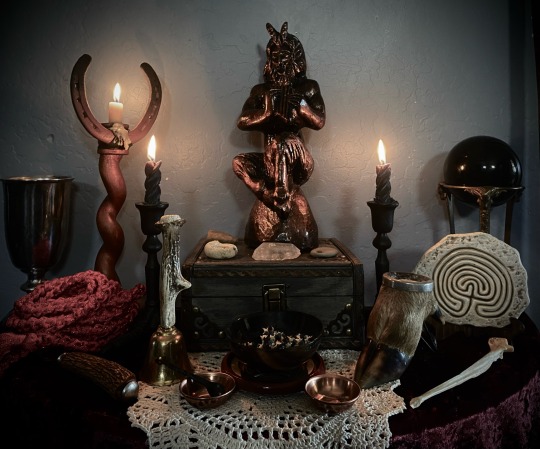
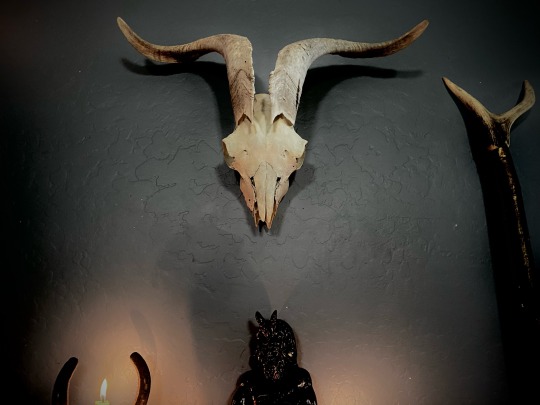
#traditional witchcraft#altar of cunning#cornish witchcraft#the old one#the bucca#witches god#witch master#the horned one#the great god pan#folk devil#witches devil#the man in black#the old religion#the old ways#my practice#pagan#witchcraft#paganism#folk magick#cunning folk#pellar#cunning man
75 notes
·
View notes
Text
this is a request for non-Wiccan-based resources on Cornish folklore, folk practices, witchcraft, myths, and traditions.
I'm also currently learning Cornish so if anyone has resources for that, those would be greatly appreciated as well!
please do not put Gemma Gary. she's been recommended to me a million times and while her books are interesting, they are Wiccan-based and that's not what I'm researching
#cornish witch#cornish witchcraft#cornish folklore#cornish folk practices#cornish folk traditions#cornwall#kernow#cornish language#request#resource request#resources#celtic#celtic paganism#celtic mythology
18 notes
·
View notes
Text
21st January
St Agnes’ Day
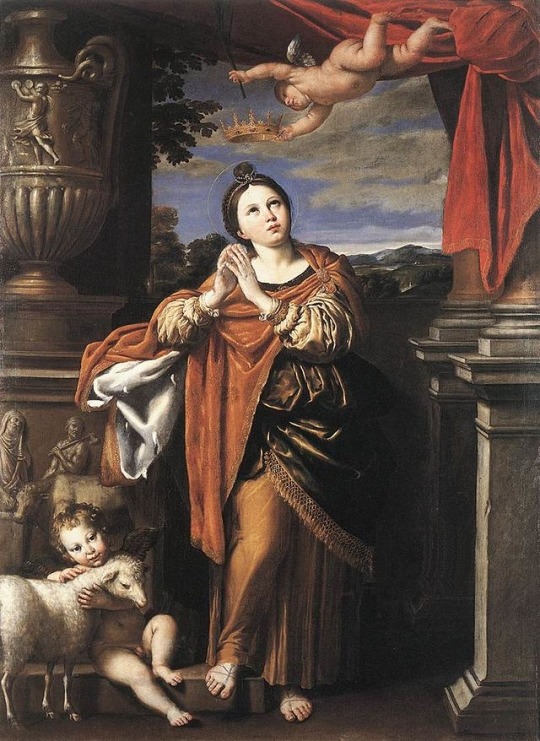
St Agnes by Domenachino (1625). Source: Wikipedia
Today is St Agnes’ Day. Agnes is believed to have been a Christian, born to an aristoratic Roman family in the fourth century AD. She was executed in 350 during Diocletian’s persecution of Christians aged just thirteen. A number of miracles are said to have taken place around her execution, including the failure of kindling when the Roman authorities attempted to burn her to death following her refusal to renounce her faith. A soldier then killed her by stabbing her through the throat. She is honoured by most Christian churches as one of the virgin saints, and is often depicted in the company of a sheep, probably due to a possibly deliberate misreading of Agnus Dei (Lamb of God). For this reason today is said to be a good day to bless sheep and all things woollen.
For some reason Agnes’ story has also found a home in Cornwall, but it is an altogether more fanciful tale, if no less dark. The chaste Agnes became the object of affection of a Cornish Giant named Bolster. Nothing Agnes could say would dissuade her gigantic suitor from his pursuit although the young woman’s constant rejections led Bolster to take out his frustration on the local settlements. Agnes therefore devised a cunning ruse to rid both her and the locality of the tiresome giant. Agnes persuaded Bolster to prove his love for her by opening a vein in his wrist and filling a hole at Chapel Porth near Truro, with his blood. The simple-minded giant had no idea that the hole led under the sea and had no bottom. As Bolster slowly lost consciousness, Agnes rolled him to a cliff edge and kicked him into the waves to drown. The grateful local people named their village St Agnes in her honour. Given this rather unchristian homicidal behaviour, it is likely that this Cornish Agnes is descended from a pagan giant-killing Celtic heroine.
#st agnes#Virgin martyrs#cornwall#Cornish giants#Agnes and Bolster#chapel porth#pagan survivals#giant killers#st Agnes Cornwall
1 note
·
View note
Note
what fae like qualities do you believe aaravos has?
I don't know enough about the fae to say definitively (I've read some works depicting fae, such as The Faerie Queene by Edmund Spenser from the 1500s, A Midsummer Night's Dream by Shakespeare, some other folklore myths) but I try to stay away from sources that are too Christianized for stuff that's more Pagan / northern and western Europe and the 1500s has plenty already.
When in doubt I'm loosely using wikipedia / old class notes for reference but if there's a site or source I think is cool and helpful I'll note it down below.
There is some that are generally common knowledge, such as:
Fae being mischevious tricksters with very particular phrasing. They don't tend to often be outright malevolent as a motivation, but often do harm to humans anyway either due to ignorance or blue-orange morality.
Blue-orange morality (for those who don't want to watch a video) is basically when a creature or being does not have a morality that operates that we would define it (on a spectrum of ethical right or wrong actions per consequence or intention). A good example is the spirits from ATLA (not LOK) or One-One from Infinity Train. He's a helpful little robot guy and he loves his friends, but he is ultimately bound and operates within the Train's rules. It's not that he can't deter from the Train's rules without distress or that he doesn't want to, it's that deterring from the Train's rules just doesn't compute to him as even a thing to do. He's operating on his own unique level and it's what turns him from a S1 ally to a S2 antagonist (but not villain).
There tends to be an emphasis on names, deals, and exchanges, i.e. if a Fae says "Can you give me your name?" and you tell them it, they own it and you by extension now, stuff like that. Also have a tendency to give humans they like, or humans who do nice things for them, gifts (whether it's actually a beneficial gift is sometimes debatable).
The Fae often lure humans away from the Ordinary Realm into the Faerie Realm, where time and magic work differently. Sometimes this means being whisked away, or unknowingly stepping through fairy rings. This can include both the Seelie and the UnSeelie Court (Scottish folklore).
Examples of the Fae in popular culture include Spirited Away (don't eat the food!), changeling myths (faerie leaving their babies in place of your own, nowadays seen as a connection to old stories of Autistic individuals), arguably Coraline (film and book), will-o-the-wisps, and other figures in Welsh, Cornish, and broad European folklore, etc.
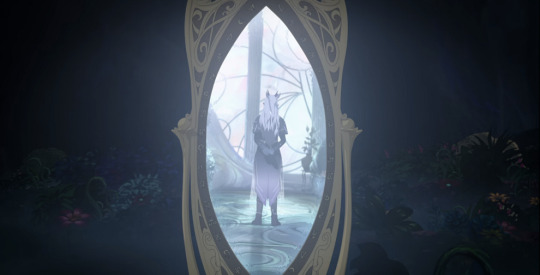
Variants / similarities include huldufolk (Icelandic and Faroese folklore), sirens (Greek), kelpies (Scottish), etc. Over time Christian (bc of course) associations have also been applied as both demoted angels and tempting devils, but that sort of works given one of Aaravos' most prominent comparisons is Lucifer, and Prometheus, who were as crafty and clever as they come.
Basically:
Aaravos emphasis (or lack thereof) regarding his name and the general mystery surrounding it — "My name would mean nothing to you" even in the face of Viren's demands
We see the emphasis on phrasing given that it's been stated by the crew that Aaravos never lies, but we know he purposefully obscures and omits information
Entering into deals and exchanges with humans, giving them gifts and promises (Ziard's staff, Viren's rule for himself and Viren's life for Claudia)
Him seducing Viren yes I said it / everything with Sir Sparklepuff tbh
Fae can also sometimes set trials to pass or tasks for people to fulfil, similar-ish to Aaravos giving Viren a little fetch quest for them to communicate / "Those who fail tests of love are simple animals."
We don't know what Aaravos actually wants, exactly, or why, but given the indifference of the other Startouch elves to humanity's plights (and the fact they've let Aaravos wreak havoc and have never stepped in to stop him) it's a far bet their long, illustrious lives have given them a decidedly warped morality, and that Aaravos is pretty indifferent to other people's immense suffering at this point, too
His mirror realm being its own sort of faerie realm that he can bring Viren in and out of
Aaravos having multiple names and monikers — the Fallen Star, the Midnight Star, one of the Great Ones — much the way the Fae folk have many — the Good Neighbours, the Fair Folk, the Kind Ones, the Wee Folk, the Others (citation).
This isn't as much of a thing but all the nature motifs surrounding Aaravos (Elarion as a flower, the nature-esque patterns on the box that held the Key and that match the key, the flower and vine emulations on his mirror).


#tdp#the dragon prince#aaravos#tdp aaravos#requests#analysis series#analysis#thanks for asking#anonymous#tdp meta
34 notes
·
View notes
Text




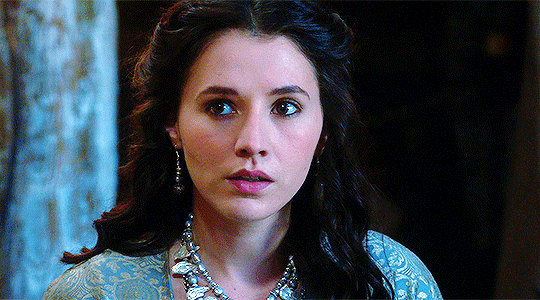
THE LAST KINGDOM ∞ 1x06
Uhtred catches the eye of a lovely pagan queen, and his band of raiders becomes mercenaries for a Cornish king. But he soon faces the fury of Alfred.
#the last kingdom#tlk#tlkedit#thelastkingdomedit#skorpa of the white horse#uhtred of bebbanburg#leofric#king alfred#iseult of cornwalum#urwcreates#tlkepedit
107 notes
·
View notes
Text
Jes' Collection of Witch Books
I said I would make this list, so here I am, making this list.
These are all the Witchy (and witchy-adjacent) books I own and/or have read. It's a long list, so it's going under a cut!
Key of Symbols:
📗 Read
📖 Reading
📚 Not Yet Read
Books that I own
📗 Rebel Witch by Kelly-Ann Maddox (Review)
📖 A Dabbler's Guide to Witchcraft by Fire Lyte
📚 Spellcrafting by Arin Murphy-Hiscock
📗 The House Witch by Arin Murphy-Hiscock (Review)
📗 Witchery by Juliet Diaz (Review)
📚 A Witch's Guide to Spellcraft by Althea Sebastiani
📚 All That is Sacred is Profaned by Rhyd Wildermuth (edit: nevermind, he's a transphobe now)
📚 Reclaiming Ourselves by Emma Kathryn
📚 In the Midnight Hour by Anthony Rella
📗 Weave the Liminal by Laura Tempest Zakroff (Review)
📚 Traditional Witchcraft: A Cornish Book of Ways by Gemma Gary
📗 Grovedaughter Witchery by Bree NicGarran (@breelandwalker)
📗 The Sisters Grimmoire by Bree NicGarran (@breelandwalker)
📚 Witchcraft by Anastasia Greywolf or Tamsin Chamberlin (don't buy this one: here's why)
Books I read from the Library
📗 The Modern Witchcraft Spell Book by Skye Alexander (don't buy this one: here's why)
📗 Backwoods Witchcraft by Jake Richards
Zines and Pamphlets
📗 A Pagan Anti-Capitalist Primer
📗 Brainscan 33: DIY Witchery by Alex Wrekk (@upthewitchypunx)
📗 Brainscan 34: A Dabbler's Week of DIY Witchery by Alex Wrekk (@upthewitchypunx)
📗 Everyday Magic #1
📗 Everyday Magic #2
📗 Exploding the Tangerine by Clint Marsh & Oliver Bly
📗 Five Principles of Green Witchcraft by Asa West
📗 Hex Your Ex
📗 The Witchy Zinester's Pocket Book of Spells
📚 Twin Peaks Tarot Spreads
📚 Sow Sprout Grow Tarot Spreads
Charity Bundle E-Books
These all came as a bundle, so the quality will vary as it does with any bargain grab-bag. I'm not linking these unless I've read (or am reading) them because it takes a long time, and I have no idea if they're good or absolute shit. If you want to learn about these, you know how the internet works.
📚 City Magick by Christopher Penczak
📚 Consorting with Spirits by Jason Miller
📚 Herbal Magick by Gerina Dunwich
📚 Hex Twisting by Diana Rajchel
📚 Italian Folk Magic by Mary-Grace Fahrun
📚 Love Magic by Lilith Dorsey
📚 Magic When You Need It by Judika Illes
📚 Magickal Astrology by Skye Alexander
📚 Personal Magic by Marion Weinstein
📚 Plant Witchery by Juliet Diaz
📚 Positive Magic by Marion Weinstein
📗 Queering Your Craft by Cassandra Snow (Review)
📚 Reading the Runes by Kim Farnell
📚 Spellcrafting by Gerina Dunwich
📚 The Big Book of Tarot by Joan Bunning
📚 The Study of Witchcraft by Deborah Lipp
📚 The Witch's Eight Paths of Power by Lady Sable Aradia
📚 The Witch's Guide to Wands by Gypsey Elaine Teague
📚 True Magic by Draja Mickaharic
📚 Water Witchcraft by Annwyn Avalon
📚 Wicca Made Easy by Phyllis Curott
📚 Wishcraft by Sakura Fox
📚 Witch, Please by Victoria Maxwell
📚 Witchcraft Activism by David Salisbury
📚 Year of the Witch by Temperance Alden
50 notes
·
View notes
Text
REX BELLUM, ARTHUR GERNOW

[ID: A looping gif of waves at sea. before the viewer are smaller, daker blue waves, while behind lighter blue waves with white crests crash against once another. The scene is peaceful, yet chaotic.]
To the once and future king. Arthur, the vicious in battle and kind pagan warlord.
Dydh Da and welcome to my devotional blog to Arthur 'paganus' as I call him; essentially worshipping the religious pagan version of Arthur. Let this be a collection and discussion of essays, devotional works, personal experiences, Arthur in myth, and Arthur's various manifestations in Brythonic and greater Celtic cultures. This will largely be a focus on Kernow, as I am part Cornish, but I will include other regions featuring him such Wales, Yorkshire, Brittany, and more.
Along with this menagerie, veneration of brythonic deities and brythonic polytheism. This blog includes both Arthur the hero and Arthur as a deity, an in-between, and Arthur as a faery.
May the dead king of war rest in his grave, let us carve a future for ourselves that he will never have to return to fight for. Dead men should rest, but let it be known for him to inspire, and for our darkest hour, he shall return.
ko-fi | links directory | blog submissions | morgan's carrd.co
#dragonis.txt#king arthur worship#brythonic polytheism#brythonic paganism#king arthur deity#celtic polytheism#pagan#paganism#paganblr#celtic paganism#celtic mythology
11 notes
·
View notes
Text
#poll bcus i want people to validate my decision on this lmfao#pobel vean#cornwall#cornish paganism#cornish folklore#kernow
3 notes
·
View notes
Text
Bucca as one with dominion over moorlands is such a delicious idea. While Their home is the Sea and the Weather, Cornish moorlands are so interlinked with both of those it's impossible for Them to not also have their home there.
0 notes
Text
I think paganism would be better off if following gods from your “ancestors” was rather phrased as “gods of my culture”. Because well, for many of us, the Christian God is the god of our ancestors, especially the ones I argue matter most to our personal identities which are recent ancestry. After all, my Slovak family worshipped the Lord, but I choose to worship Morena to be closer to my culture. I also think this helps to include people who were adopted into cultures, whether by families or growing up there.
#my Cornish last name has Breton origins but I would never claim to be Breton#paganism#pagan#witchblr#witchcraft#paganblr#this also helps to emphasise culture over “blood”
227 notes
·
View notes
Text


Horned God Invocation: ⛦
By the flame that burneth bright
O Horned One!
We call thy name into the night
O Horned One!
Thee we invoke by the moon led sea
By the standing stone and the twisted tree
Thee we invoke where gather thine own
By the nameless shrine forgotten and lone
Come where the round of the dance is trod
Horn and hoof of the goat-foot God
By moonlit meadow on dusky hill
When the haunted wood is hushed and still
Come to the charm of the chanted prayer
As the moon bewitches the midnight air
Evoke thy powers, that potent bide
In shining stream and secret tide
In fiery flame by starlight pale
In shadowy host that ride the gale
And by the fern-brakes fairy-haunted
Of forests wild and wood enchanted
Come! O Come!
To the heartbeats drum!
Come to us who gather below
When the broad white moon is climbing slow
Through the stars to the heavens height
We hear thy hoofs on the wind of night
As black tree branches shake and sigh
By joy and terror we know thee nigh
We speak the spell thy power unlocks
At Solstice, Sabbat, and Equinox
Word of virtue the veil to rend
From primal dawn to the wide world's end
Since time began---
The blessing of Pan!
Blessed be all in hearth and hold
Blessed in all worth more than gold
Blessed be in strength and love
Blessed be wher'er we rove
Vision fade not from our eyes
Of the pagan paradise
Past the gates of death and birth
Our inheritance of the earth
From our soul the song of spring
Fade not in our wandering
Our life with all life is one,
By blackest night or noonday sun
Eldest of gods, on thee we call
Blessing be on thy creatures all.
🕯️🐐🕯️
🌿🌿🌿🌿🌿🌿🌿🌿🌿🌿🌿🌿🌿🌿🌿🌿🌿🌿
#the horned god#invocation#herne#cernunnos#karnayna#the great god pan#the bucca#the man in black#old nick#folk devil#old hornie#paganism#faery tradition#traditional witchcraft#gardnerian wicca#cunning craft#the old religion#the old ways#witchcraft#cornish witchcraft#altar of cunning
107 notes
·
View notes
Text
GREAT BRITAIN & WEST EUROPEAN RESOURCES
The Anthropological Masterlist is HERE.
Great Britain is a European island in the North Atlantic Ocean. It is the largest island in the world.
ARTHURIAN ─ “The Matter of Britain, or the Arthurian cycle, is a medieval European body of literature.”
─ Arthurian Information
─ Arthurian Sources
─ Arthurian Texts
CORNWALL ─ “The Cornish people are a Western European people. They are native to Cornwall.”
─ Cornwall’s Stones
─ Cornish History
─ Cornish Dictionary
ENGLAND ─ “The English people are a Germanic people. They are native to England.”
─ Middle English Literature
─ English Folklore
─ The English Renaissance
ICENI ─ “The Iceni, or Ecini, were a Brittonic people that lived from the British Iron Age to the early Roman era. They lived in modern-day Norfolk.”
─ Iceni Information
IRELAND ─ “The Irish people are a Western European people that share the Irish culture. They are native to Ireland.”
─ Irish Folklore & Mythology
─ Irish History
─ Irish Language
MANX ─ “The Manx people are a West European people that share the Manx culture. They are native to the Isle of Man.”
─ Manx Information
─ Manx History
─ Manx Language
ORKNEY ─ “Orkney, or the Orkney Islands, is a European archipelago. It is located in Scotland.”
─ Orcadian Information
─ Orcadian Culture & History
SCOTLAND ─ “The Scottish, or Scotch, people are a European people. They are native to Scotland.”
─ Scottish Folklore
─ Scottish History
─ Scots Language
WALES ─ “Welsh people are a Western European people that share the Welsh culture. They are native to Wales.”
─ Welsh Culture
─ Welsh History
─ The Four Branches of the Mabinogi
Western Europe is a European region that constitutes the western part of the European continent. Great Britain is also considered part of Western Europe.
BELGIUM ─ “The Belgian people are a Western European people that share the Belgian culture. They are native to Belgium.”
─ Belgian History
─ Belgian Timeline
DUTCH ─ “The Dutch people are a West Germanic people. They are native to the Netherlands.”
─ Dutch Literature (in Dutch)
─ Dutch Folklore
─ Dutch History
FRANCE ─ “The French people are a Western European people that share the French culture. They are native to France.”
─ French Culture
─ French History
─ French Dictionary
FRANKS ─ “The Franks were a Germanic people. They lived between the Lower Rhine and Ems River.”
─ Frankish Information
─ Frankish Information
─ Rise of the Franks
GERMANIC NEOPAGANISM ─ “Germanic Neopaganism, or Heathenry, is a Pagan religion. It originated in Europe in the early 20th century C.E.”
─ Germanic Neopagan Information (in German)
*MEDIEVAL EUROPEAN ─ “The Middle Ages, or the Medieval Period, was a European period of time from the 5th century C.E. to the 15th century C.E.”
─ Medieval Culture
─ Pliny’s History of the World
─ Medieval Military History
NORSE ─ “The Nordic, or North Germanic, people are a Germanic people. They are native to the Nordic region of Europe.”
─ Vikings of Denmark
─ Norse Mythology
─ The Edda
SWEDEN ─ “The Swedish, or Swede, people are a Germanic people. They are native to Sweden.”
─ Swedish Culture
─ Swedish History
─ Swedish Dictionary
* - The Medieval European period was not just a Western European period of time. It was also part of many other European histories.
#resources#great britain#west europe#arthurian#cornwall#england#iceni#ireland#manx#orkney#scotland#wales#belgium#dutch#france#franks#germanic neopaganism#medieval european#norse#sweden
169 notes
·
View notes
Note
Loved your response to the anon asking about leaving Christianity for Paganism. Quick question - if you’re an American of mixed European heritage, how do you choose which Paganism to follow?
Thank you, and great question!
Well, truth is, the people of Europe have mixed, intermingled, and intermarried for thousands upon thousands of years. The Norse and Islander Celts intermarried. An Irish surname on my father’s side is actually a Norse name—so some Norwegian, in all likelyhood, came to the west of Ireland a very long time ago, married an Irish women, and their children kept marrying Irish spouses (this is just my guess, since I have no detectable Scandinavian DNA) On the Continent, you have the mixing of Gauls and Germans, Gauls and Romans, Germans and Romans, Germans and Slavs, Slavs and Balts, Greeks and Romans, you get the picture. If people lived next to each other, there was cultural exchange through proximity and intermarriage. This resulted in a lot of gods that were quite similar to each other in aspect, but went by different names (Juno and Hera, for instance).
My thoughts on this are thus: try to find out what your heritage is as best you can, and go towards that. If you are descended from a certain people, you have every right to worship those gods, period, the end. And that includes gods from different tribes of people. My own faith is mixed Germanic and Celt, as I am nearly entirely English, Cornish, and Irish by heritage. I celebrate Anglo-Saxon and Irish holidays. Most folkish pagans have absolutely nothing against a “mixed practice” so to speak, as long as you aren’t just picking some deity at random because you think it’s cool.
7 notes
·
View notes